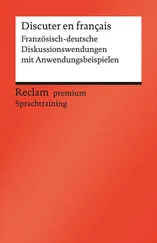They plied Smith with questions, whose replies were duly commented upon and expanded. He was a messenger from the Underworld, on short leave, witness to events which were taking place just outside the others’ ken and yet almost close enough to touch. An exasperating state of affairs to the diplomatic frame of mind, although they abided by Goethe’s rule: judge by what you see, and respect the unseen. Goethe, the giant whose lifework lay unread, the intellectual locomotive of the old Germany with all those quarrelsome kings and counts and dukes and generals and bishops. That it should come to this, in the land of Goethe… a refrain of lament over the land that once brought forth heroes of such greatness, not that anybody knew what that greatness stood for. People simply parroted one another, perpetuating the myths. The land of Goethe, what of it? The land of Alfred Rosenberg and Goering more like, the land of stupidity and death. A play in three acts: the rise, the flowering, and the downfall of the Idiot.
Oscar respected the unseen, certainly. It was his lifeblood. But not now.
It was well past midnight by the time he trudged up the Schifflaube on his way home.
Kate woke up early, as usual: a habit left over from when Emma was a toddler. She had lost the ability to sleep late. London was hushed and still, the light of morning barely perceptible. Wednesday, June 4: Emma’s birthday. The first quarter-hour of the day, when she surfaced from dreams that more often than not were disturbing. She was a dreamer, making up at night for what she missed during the day. Passion and common sense were opposite sides of the same coin in her case, some would say. She herself did not go in for such introspection. Fifteen minutes to recover from sleep, her arms and legs feeling heavy, her musings and sentiments as light as air. Emma, Carl, Oscar. Matteous. The silkiness of the name as pronounced by him, the African tone and lilt of it, were impossible to emulate, but the echo of it rang in her ears. She had left him behind in his lodgings the day before, restraining herself from taking him home with her. The rain pelting down on Earls Court Road had not made for a cheerful scene. The way each of them had kept silent in that small room overlooking the busy street said enough: what am I doing here, is this where you want me to be, I can’t stay forever, nobody knows me, I no longer exist.
Thinking back, Kate recalled Matteous’s ice-cold hands, and his disconsolate look when she broke the silence at last with some favourable comment on his room.
Fifteen minutes in bed in the quiet of earliest morning, a delicate mechanism affording her a leisurely adjustment to the passing of time. One hand on her stomach, the other under her head: an attitude of surrender to an unknown love, of a lover at a loss. She had no commitments, nothing more to prove, it all lay behind her, youth, marriage, motherhood. All there was now was the war, and a black boy who had unaccountably come into her life. Should she go and see him later on, or should she leave him alone? Matteous was no longer a child, and she not his mother, though it seemed a lot like it at times. Emma had grown up so fast that Kate had hardly had a chance to be a mother. Now, at fifty-four, she wondered what on earth she had spent all that time doing. For some reason everything had seemed to happen at high speed. Like watching the water drain out of a basin when you pulled the plug. The little whirlpool at the plughole, that was where she was now.
Somewhere in the neighbourhood a clock struck six. In Berlin the day would also be beginning. Their clocks were an hour ahead, of course, so Carl would be on the train by now. Matteous would still be asleep, she imagined. And so would Oscar, almost certainly. She did not think about Oscar very much lately. She registered this as a curious state of affairs, not as a cause for concern. They lived their lives much as sparrows perching on the same clothes line: fairly content, fairly tame. Their embrace seemed to have lost its necessity, and the distance between Berne and London did not make them yearn for one another. This suited Kate quite well, it was just fine. Eros had never played a big part in their lives, which was probably true of a lot of people. The years before Oscar did not count, for they lay dormant in her core. Or as good as dormant. Sometimes, rarely, very rarely, they came back to her in a dream or in her fifteen-minute reverie upon waking.
There had been a change over the past months, since she had met Matteous. It happened several times that she was jolted awake by the crash, her heart thumping. The terrifying crash. After the fear came the memory, and with the memory the pain. She was eighteen again and just married. She was back in Rome, holding hands with him as they wandered through the old city. He was working on the Roman Forum excavations, his “never-ending dustpan-and-brush project”, as he called it. One of the most talented archaeologists of his generation, older than her by ten years: Roy de Winther, Winther with an h . Countless times she had spelled it out – Winther with an h after the t – during their years of European travel. Four years to be precise. From Gibraltar to Oslo, from Budapest and Kiev to Rome and Sicily. There were always archaeological finds to be inspected, museums that were not to be missed, conferences and special seminars to be attended. Sometimes they rented a house where Roy could work on his lectures and write articles for international journals and newspapers. Once Schliemann had discovered Troy, archaeological excavations became newsworthy, and archaeologists were much in demand. Roy de Winther was among those in demand. Also from Kate, especially from her. Her wilfulness had taken him by storm, and within half a year they were married. The past was his concern, the future would be hers. Their immediate future consisted of travelling. Having a child did not enter her mind, she felt little more than a child herself. All those trains, cars, ships, all those hotels and pensions, rented accommodations, cultural institutes… It was the carefree time before the Great War, a period of vigour and ambition. They were part of it all, their energy was boundless, they were free spirits, they were mad about each other. The world would never be the same again, no love, no death would ever be the same. No measure of devotion or happiness could compare with the experience they shared during those years.
Kate had covered it all up, stowed everything away in sealed packages wrapped around by the new life she found herself leading after the catastrophe. Four years of undivided devotion should be enough to keep the machines of memory in fuel forever. But the machines had let her down, the memories of those days began to fade, or were quickly pushed out of sight. She had proved able to make his body vanish, and forget his love. Concrete it over.
But nothing vanishes for good. Not the train journey, which was Roy’s last. From Milan to Rome and her. The crash had to have been horrific, the newspapers carried pictures of great mounds of twisted steel, of flames and chaos and passengers trapped in the wreckage. Sixty dead. Roy was mentioned by name in the reports. She still had the newspaper somewhere. Stored away, like all the rest.
Time to get up: she was due at the hospital, the boys would be waiting for her, including Matteous, perhaps. She had to move her arms and legs, get away from the old, dead, illusory world of her dreams. Roy’s world, her husband’s.
June 4: Emma’s twenty-ninth birthday. Kate wondered briefly if her daughter would be celebrating it, and if so how. She opened the blackout curtains. The sun was rising, and soon the rumble of traffic would be heard on Earls Court Road, where the buses went past Matteous’s lodgings. Birds began to sing, a gardener began to rake the gravel in the square nearby. Without much thought, Kate reckoned with the possibility of an air raid, although it had been quiet for a fortnight now. She kept a bucket filled with water in the kitchen. Symbolic instance of preparedness: a midge’s tiny fist raised against a leviathan.
Читать дальше












